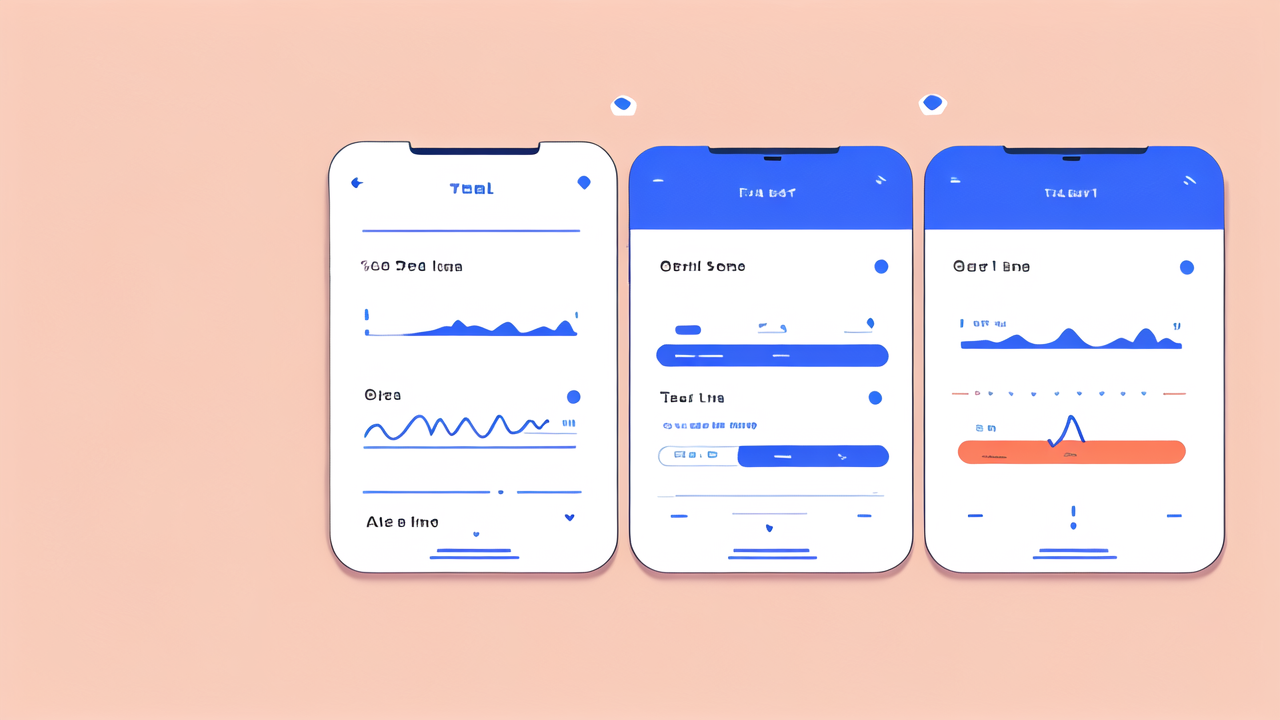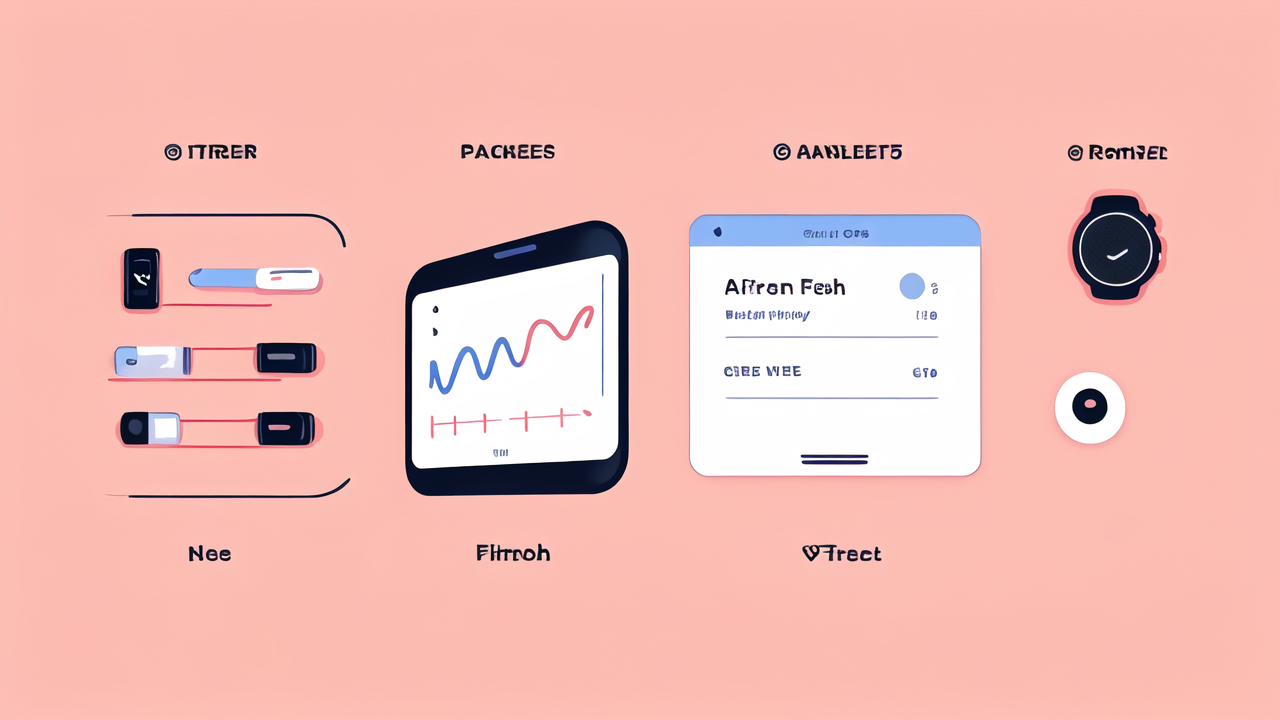Understanding Fitness Trackers and Their Role in Exercise Regimens
The Evolution of Fitness Tracking Technology
Fitness trackers have come a long way since their inception. They started as simple pedometers, counting steps and estimating calories burned. Today, they are sophisticated devices that can monitor heart rate, sleep patterns, and even stress levels. The technology has evolved rapidly, incorporating GPS, advanced sensors, and AI algorithms. This evolution has made fitness trackers essential tools for both casual exercisers and serious athletes. They provide real-time data, allowing users to make informed decisions about their workouts and overall health.

Key Features that Enhance Workout Efficiency
Modern fitness trackers offer a range of features that can significantly improve workout efficiency:
- Heart rate monitoring
- GPS tracking
- Workout mode detection
- Recovery time suggestions
- Personalized coaching
- Sleep tracking
- Stress management
These features help users optimize their training, prevent overexertion, and achieve their fitness goals more effectively. By providing insights into various aspects of health and fitness, trackers enable users to make data-driven decisions about their exercise routines and lifestyle choices.
Criteria for Evaluating the Best Fitness Trackers
Analyzing User-Friendliness and Intuitive Design
When choosing a fitness tracker, user-friendliness is crucial. The best devices have intuitive interfaces that make it easy to access and understand data. A good fitness tracker should have a clear display, responsive touch controls, and a straightforward menu system. The device should be comfortable to wear during various activities and should not interfere with movement. Additionally, the companion app should be well-designed, allowing users to easily sync and analyze their data. The overall user experience should be seamless, encouraging consistent use and engagement with the device.

Assessing the Accuracy of Data and Metrics
Accuracy is paramount in fitness tracking. Users rely on these devices to make informed decisions about their health and fitness. The best fitness trackers provide precise measurements of steps, distance, heart rate, and calories burned. They should also accurately detect different types of activities and workouts. Many top-tier devices now include advanced sensors and algorithms to improve accuracy. When evaluating a fitness tracker, it's important to consider independent tests and user reviews that assess the device's accuracy in real-world conditions.
Consideration of Connectivity and Companion Apps
Connectivity features and companion apps play a vital role in the overall functionality of fitness trackers. The best devices offer seamless synchronization with smartphones and other devices. They should support both Bluetooth and Wi-Fi connections for efficient data transfer. The companion app should provide comprehensive insights, detailed analytics, and easy-to-understand visualizations of the collected data. Integration with popular fitness apps and platforms is also a plus, allowing users to consolidate their health and fitness data in one place. The app should offer customization options, goal setting features, and social sharing capabilities to keep users motivated.
Top Fitness Trackers on the Market in the United States
Leading Brands and Their Flagship Models
The fitness tracker market in the US is dominated by several key players, each offering unique features and designs. Here are some of the leading brands and their popular models:

- Fitbit - Charge 5 and Versa 3
- Apple - Apple Watch Series 7
- Garmin - Forerunner 945 and Vivosmart 4
- Samsung - Galaxy Watch 4
- Whoop - Whoop 4.0
These brands have established themselves as reliable providers of high-quality fitness tracking devices. Each offers a range of models to cater to different user needs and preferences, from basic activity tracking to advanced sports performance analysis.
Innovative Features that Set them Apart
What sets these top fitness trackers apart are their innovative features:
- Fitbit's stress management score and ECG app
- Apple Watch's blood oxygen monitoring and fall detection
- Garmin's advanced running dynamics and recovery advisor
- Samsung's body composition analysis
- Whoop's strain coach and sleep coach
These features go beyond basic activity tracking, offering users deeper insights into their health and fitness. They provide a more holistic approach to wellness, considering factors like stress, sleep quality, and recovery in addition to physical activity.
User Reviews and Recommendations
User reviews and recommendations play a crucial role in evaluating fitness trackers. They provide real-world insights into the devices' performance, durability, and user experience. Based on numerous reviews, users consistently praise the accuracy and comprehensive features of the Fitbit Charge 5 and Apple Watch Series 7. The Garmin Forerunner 945 is highly recommended by serious athletes for its advanced training features. The Samsung Galaxy Watch 4 is praised for its sleek design and smartwatch capabilities. The Whoop 4.0 receives positive feedback for its unique approach to recovery and strain monitoring.
When choosing a fitness tracker, it's important to consider your specific needs and goals. Some users prioritize battery life, while others focus on specific sports features. Reading a variety of user reviews can help you understand the strengths and weaknesses of each device in real-world use.




Leave a comment
This site is protected by hCaptcha and the hCaptcha Privacy Policy and Terms of Service apply.